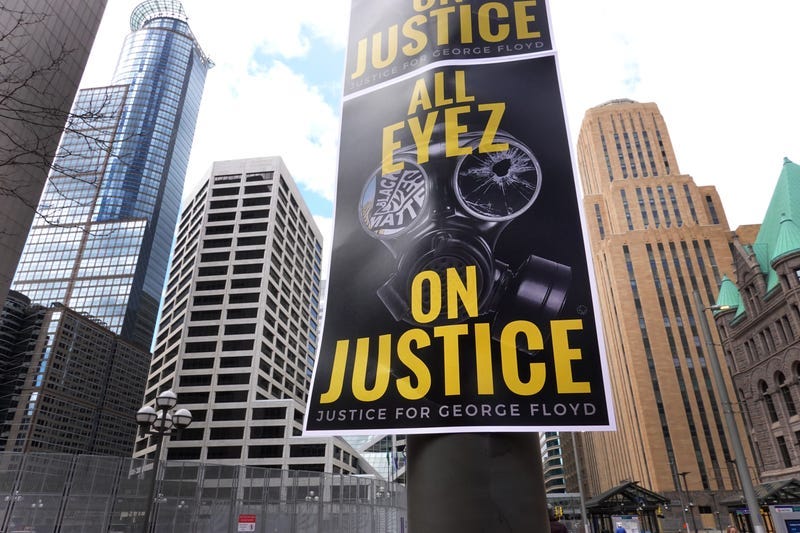
Derek Chauvin's training, specifically as it related to use of force, was the focus of Tuesday's testimony in the former Minneapolis officer's murder trial.
The state opened the day with Minneapolis Police Sergeant Ker Yang, who is Crisis Intervention Coordinator.
Prosecutor Matthew Frank zeroed-in on the ongoing decision-making that officers face in certain instances.
"When we talk about fast-evolving situations, I know they do exist, they do happen," Yang said. "But a lot of the time, we have the time to slow things down and reevaluate and reassess."
The state is trying to show that Chauvin used excessive force that is not part of training for the department despite the circumstances.
Next on the stand was Lieutenant Johnny Mercil, the use-of-force instructor for the Minneapolis Police Department, who testified that police policy is that a neck restraint is not authorized if the subject is not resisting, under control and in handcuffs. However, Mercil did testify that control of a subject does not always end with handcuffing.
On cross-examination, Chauvin's defense attorney Eric Nelson asked Mercil to look at still photos from the body camera of Officer Thomas Lane. Nelson asked Mercil if Chauvin's leg appeared to be on George Floyd's shoulder-blade, to which Mercil agreed it did.
Officer Nicole Mackenzie, a medical support coordinator with the Minneapolis Police Department, was the third witness called to the stand Tuesday afternoon. Mackenzie provides first aid training to officers in the field and to recruits and cadets at the police academy.
Mackenzie testified that officers are required to start CPR if a person has no pulse, and that being able to speak does not mean they aren't suffering from breathing complications:
"There is the possibility that some could be in respiratory distress, and still be able to verbalize it," Mackenzie said. "Just because they are speaking doesn't mean they are breathing adequately."
Mackenzie testified that Chauvin has attended the training she conducts. On cross-examination, Nelson asked Mackenzie about "excited delirium", which will be part of Chauvin's defense as to the actions of George Floyd. But the state objected to Nelson introducing that evidence until the defense presents its case.
Mackenzie was then excused until next Tuesday, at which point it's expected she'll be called as a defense witness.
Next on the witness stand was Jody Stiger, a use of force expert from Los Angeles California.
He told jurors after watching the video that Floyd appeared to be resisting officers in getting into the squad car, but once he was in the prone position on the ground, he said Floyd slowly reduced his resistance.
"At that point the officers, the ex officers I should say, they should have slowed down or stopped their force as well."
Court proceedings ended early and abruptly by Judge Peter Cahill. Testimony will continue tomorrow.
LISTEN on the Audacy App
Sign Up and Follow Audacy
Facebook | Twitter | Instagram
